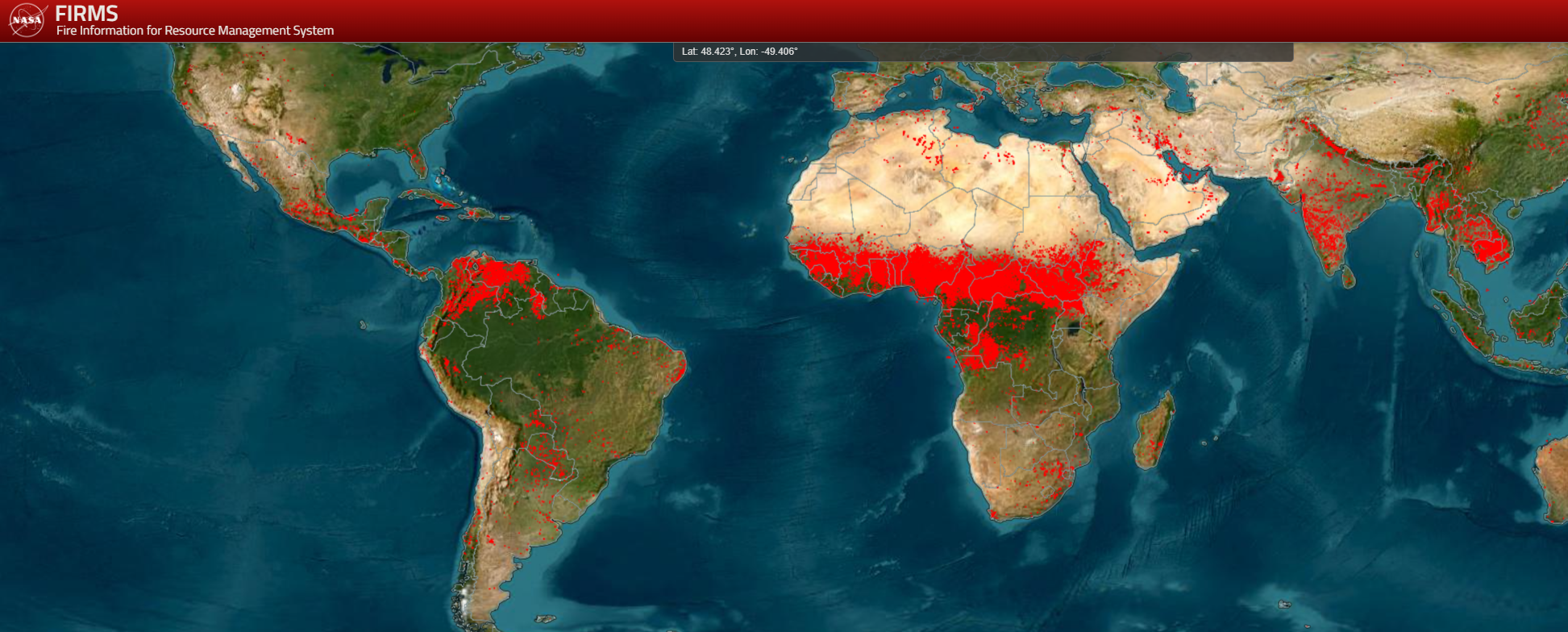The world is burning, metaphorically and literally, and it’s a stark reality that stretches across the equator. NASA satellite images confirm it: an alarming volume of wildfires is devastating our planet, and Colombia is no exception. Here, in our capital Bogota, we can all see the wildfires in our surrounding hills and witness how the El Niño phenomenon has struck with unprecedented intensity. Temperatures in Colombia have reached 41ºC, breaking records and sending a clear signal: climate change is not a distant problem; it is a crisis we are living through now.

These extreme events are not just numbers and statistics; they are a reality that affects millions of people. Each heatwave, each wildfire, each temperature record is a reminder that our current economic model is not sustainable. We need a drastic change, not only to mitigate the effects of climate change but also to slow down this race toward an uncertain future that threatens entire societiies and ultimately, humanity’s survival.
Petro’s Vision: A Voice in the Desert
Amidst this crisis, President Gustavo Petro’s words resonate with a special urgency. Often criticized for his apocalyptic tone, Petro has warned of “the beginning of the extinction of human civilization.” Far from being exaggerations, these statements reflect a reality we are beginning to experience. Petro has taken his environmental message to some of the world’s most influential stages, such as the World Economic Forum in Davos, the COP, and the UN General Assembly, urging leaders and citizens to take concrete actions.
Colombia Seeks International Help Amid Climate Crisis
Faced with a dramatic turn of events, Colombia has been forced to seek help from the international community. The scale of the forest fires and the impact of climate change have overwhelmed the country’s response capacity. Recent reports indicate that the Colombian government has urgently called on the UN for assistance in this unprecedented environmental crisis. This request is a testament to the severity of the situation and reflects the need for collective and coordinated action at a global level.
Colombia’s appeal to the UN is not just a cry for help but also a reminder that climate change is a challenge that transcends borders and requires international solidarity and cooperation. This crucial step underscores the importance of joining efforts and resources to confront a crisis that threatens not only Colombia but the ecological balance of the planet. The response to this call will be a key indicator of global commitment to addressing the increasingly tangible consequences of climate change.
Innovation in Climate Action: Debt-for-Climate Swap
In this context, an innovative initiative has emerged as a potential solution: the debt-for-climate swap. This strategy, being considered by the European Union, the IMF, and the United States, proposes that countries with significant debts can reduce them in exchange for concrete commitments to climate action. Colombia, with its urgent need to address the effects of climate change, could greatly benefit from this iniitiative.
The debt-for-climate swap would not only relieve Colombia’s financial burden but also provide the necessary resources to invest in renewable energy projects, forest conservation, and sustainable development. This proposal represents an opportunity for Colombia, and other countries in similar situations, to transform their economies into greener and more sustainable models while managing their financial obligations more effectively.
Colombia’s adoption of this strategy could be a crucial step toward a more sustainable future, demonstrating that it is possible to align economic needs with environmental ones. This innovative approach could serve as a model for other countries facing similar challenges, paving a new path in the fight against climate change and its devastating effects.





